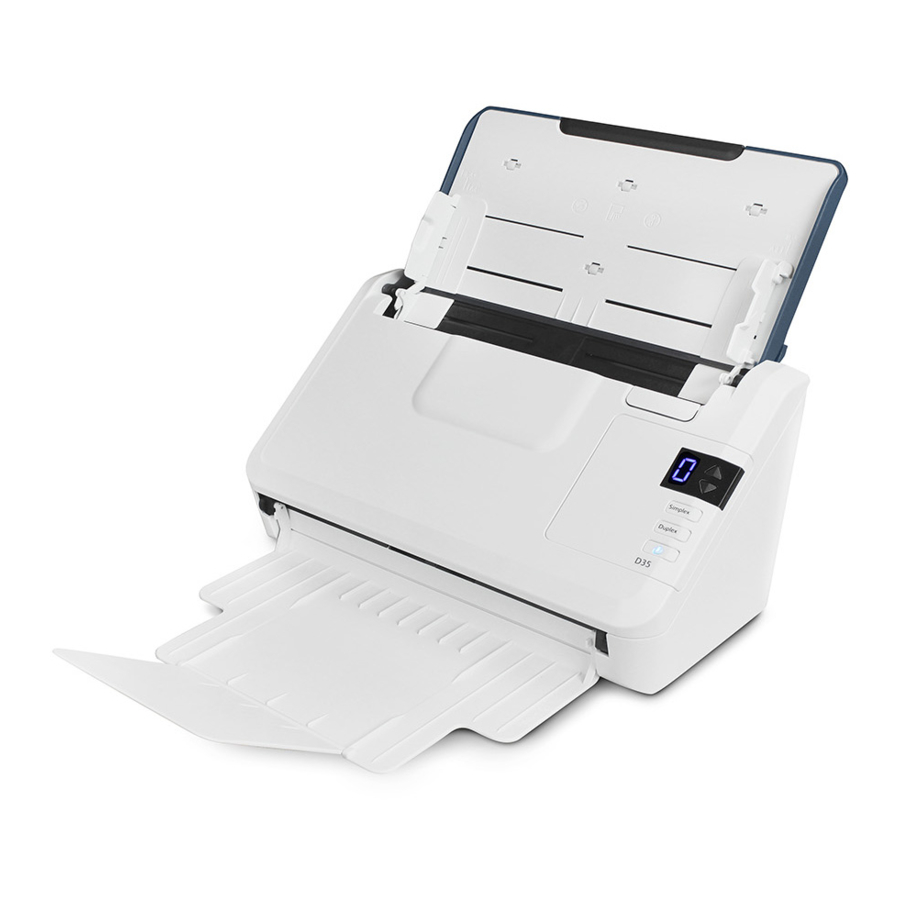Xerox D35 Panduan Pengguna - Halaman 24
Jelajahi secara online atau unduh pdf Panduan Pengguna untuk Pemindai Xerox D35. Xerox D35 50 halaman.

®
Xerox
D35 Scanner
Documents to Avoid Scanning
The documents in this list can be scanned, but please note that scanning documents of this type
will reduce the life of the scanner. Maintenance will be required more often and replaceable parts
will wear faster. These types of documents will jam more frequently and damage to the original
documents may occur. If you do choose to scan these document types, do not scan large batches.
This type of use is not covered under the scanner warranty and alters replacement parts life
expectancy.
We recommend you limit the amount or completely avoid scanning documents that are in this list.
•
Curled, wrinkled or folded documents may cause paper jams or multiple pages being fed
through the scanner at one time.
•
Perforated or punched paper that could tear when the separation roller engages.
•
Coated paper or photographs where the coating can flake off during scanning and leave
residue in the scanner.
•
Extremely smooth, shiny, or highly textured paper may cause the paper feed rollers to slip
across the page and cause the scanner to report a paper jam.
•
Carbonless copy paper may tear while being fed through the scanner and the pressure of the
rollers may leave streaks on the page. The chemical coating on this paper will rub off on the
rollers during the scan process, increasing the frequency of miss-feeds and paper jams.
•
Partially transparent paper such as tracing paper as any images from the opposite side of the
page or black background will appear in the scanned images.
Unsupported Document Types
Do not scan the following types of documents as they may cause damage to the scanner.
•
Items outside of the specified supported sizes, thickness, and weight defined in this
document.
•
Non-rectangular or irregularly shaped paper will cause the scanner to detect and report
document skew errors or paper jams.
•
Carbon paper that will leave residue in the scanner and on the rollers that will transfer to the
next set of documents scanned.
•
Documents with hard items attached such as paper clips, binder clips, and staples.
•
Documents with wet ink or white-out.
•
Thermal or photosensitive paper.
•
Overhead projector sheets, plastic film, camera film, and any other type of transparent or
partially transparent plastic item.
•
Documents that have been glued together.
•
Cloth or metallic sheets.
Scanning from the Automatic Document Feeder (ADF)
Preparing Documents for Scanning
•
Fan the documents to make sure all pages in the stack are separated.
5-2
Loading Documents to Scan
User Guide
